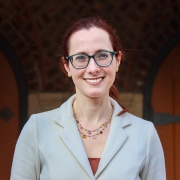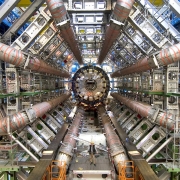Research Helps Develop Predictive Model of How Humans Estimate Speed
Psychologists at the University of Pennsylvania and the University of Texas at Austin have analyzed the steps involved in estimating how fast an object is moving—from light bouncing off the object, passing through the eye’s lens, hitting the retina, and transmitting information to the brain through the optic nerve—in order to build an optimal model. Such a model, which uses all the available information in the best way possible, is known as an “ideal observer.” They then tested this ideal observer model against people’s performance in a speed-estimation experiment.
The research was conducted by Johannes Burge, assistant professor in the Department of Psychology in Penn of Arts and Sciences, and Wilson Geisler, professor and director of Center for Perceptual Systems at UT-Austin. It was published in Nature Communications.
“There have been many descriptions of what visual systems do when estimating motion but there have not been many predictions for how they should do it,” Burge said. “We use a best-case scenario as a starting point for understanding what the visual system actually does. If we get a close match between the performance of the ideal observer model and the performance of humans, then we have evidence that humans are using the visual information in the best way possible.”
Click here to read the full article.





